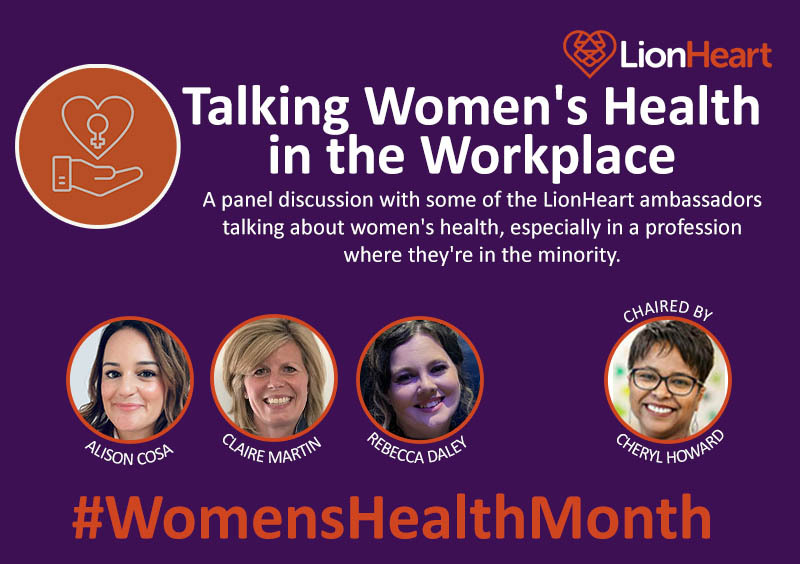Women's Health Month in Facts and Figures

The month of May is Women’s Health Month. But what are the facts and figures around women’s health - and what is its impact in a profession where women are still very much a minority?
Women live longer than men but spend more of their lives living with illness and disability.
Data from the Office for National Statistics (ONS) Labour Force Survey shows that workplace-related illness impacts an estimated 936,000 women compared to 806,000 men and says the UK is losing 150 million working days each year due to poor women’s health and a lack of suitable support.
A 2021 briefing by the House of Lords Library summarised some of the health inequalities experienced by women:
- Women are more likely to experience common mental health conditions than men
- Women are more likely to be misdiagnosed
- Women receive less pain medication after identical procedures and are more likely to be undertreated for pain by doctors
- Women are less likely to be admitted to hospital when they complain of chest pain
- Women had more than double the rate of death than men within the 30 days following a heart attack
Experts say there is evidence that female-specific health conditions - such as heavy menstrual bleeding, endometriosis, pregnancy-related issues and the menopause - are often overlooked.
Endometriosis
On average it takes 8 to 9 years to receive a diagnosis of endometriosis in the UK with 47% of women needing 10 or more GP appointments before receiving a diagnosis. (Endometriosis UK)
Women diagnosed with endometriosis tend to earn less, which may be down to taking on lower-paid roles or reducing their working hours (ONS)
Menstruation
More than two-thirds experience a negative impact at work due to menstruation symptoms while just over a half had been unable to go into work at some point because of their symptoms. Almost 7 in 10 respondents also told CIPD that the symptoms they had experienced had had a negative impact at work.
Fertility
In the UK around three and a half million people are currently suffering some kind of fertility problem. Whilst infertility affects both women and men, research highlights how women feel the impact of infertility at work more acutely. Women report treatment taking a greater toll on their health, while facing larger barriers accessing information from their employer or requesting support. (Fawcett Society)
Pregnancy
Early miscarriages happens in an estimated 10-20% of pregnancies. Up to a quarter of women will experience miscarriage at some point in their lives.
As many as 74,000 women a year lose their jobs after getting pregnant or taking maternity leave. And more than a third say they were sidelined or demoted whilst pregnant, on mat leave or when they return from mat leave.
Menopause
The Faculty of Occupational Medicine says nearly eight in 10 menopausal women are in work. Some 45% of women say they feel their menopause symptoms have had a negative impact on their work (British Menopause Society)
Caring responsibilities
Women are around seven times more likely than men to be out of the labour market due to caring commitments, according to analysis published by the TUC March 2023, and are more likely to reduce their working commitments to provide unpaid care. Carers UK says as many as 1 in 5 women aged 55-59 in England and Wales are providing unpaid care.
Jo Grant, LionHeart’s training and wellbeing projects manager, said: “When you see the facts and figures around women’s health listed together like that it can be quite shocking. At LionHeart we support women surveyors every year who are suffering from physical or mental ill health, and many more who have experienced negative impact on their surveying careers after pregnancy or maternity leave.
“During Women’s Health Month in May we’re looking forward to exploring the subject further in a panel discussion with some of the LionHeart ambassadors. We’d remind any surveyor affected by any of the above to get in touch to see how we can help.”
Talking Women's Health in the Workplace
Don't miss this recorded panel discussion with some of the LionHeart ambassadors talking about women's health - especially in a profession where they're in the minority.
Click on the image or watch it here
- Find more subjects in the LionHeart Webinar Library


